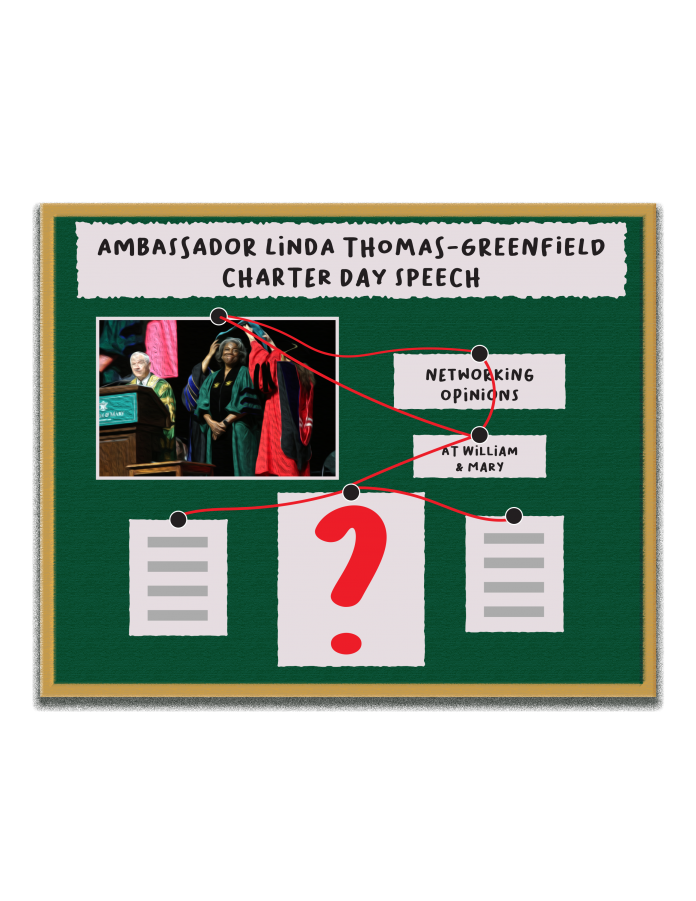John Powers ’26 is a prospective Public Policy major who hails from Brooklyn, New York. He is a proud member of the William and Mary Debate Society. Contact at jdpowers@wm.edu.
The views expressed in this article are the author’s own.
I’ll be honest — when I joined The Flat Hat as an associate opinions editor in January, I went to LinkedIn, edited my job history and started connecting with people who work here.
I’m not alone. LinkedIn is popular with college students, especially among very motivated students like us. 50% percent of people with a bachelor’s or an advanced degree use the platform in the United States, and we can expect it to become more popular in the coming years. It’s a phenomenal way to find new jobs, build relationships and maintain your list of contacts.
As conversations of what your summer plans are ramp up as the internship search reaches its peak, we’re reminded of how valuable tools like LinkedIn and networking are. But, I would be remiss to say there is no cause for concern over our ubiquitous networking culture.
Sometimes, scrolling through LinkedIn feels like a dog and pony show in which people race to flaunt their new positions or highlight perfectly crafted posts to give future employers and their connections a taste of who they are. Others connect with people just to get to the coveted “500+ connections” distinction or endorse someone’s skills hoping the favor is returned.
This is how our world works: we live in an era dominated by social media and technology. We’re incentivized to connect with those we don’t even know to unlock other connections. We have an interest in building a brand and promoting ourselves. But I do not fault anyone who participates in that dog and pony show — after all, I’m guilty as charged.
Yet one can’t help but think that most of the LinkedIn and networking culture is rather conceited. The structure of it is rooted in pride rather than service. Scrolling through the dog and pony show often has the effect of making you feel inferior and unqualified, and since showing off accomplishments is the norm on LinkedIn, you might even feel envy.
With the nuanced reality of LinkedIn and networking in mind, I did not think that Linda Thomas-Greenfield, the U.S. Ambassador to the United Nations, would offer any insights into this discourse. Yet her remarks on Charter Day were particularly salient.
“[F]ind a way to serve,” Thomas-Greenfield said. “Service will make the world better, but it will also make you better. It will enrich your life. And trust me on that, because I feel I have such a rich life. You will find, as I have, that nothing is more rewarding than a life of service to others. And regardless of the field you go into — whether it’s business or academia or engineering — know this: your responsibility to the world is not defined by your title.”
She also encouraged students to spend at least two years in some kind of public service.
Indeed, serving others is good for one’s mental health, which can lead to more productivity at work. It is also a way to gain fulfillment and avoid quiet quitting, in which employees feel so discontent at work that they only perform the bare minimum duties of their jobs.
As many of us arrange our career plans for the summer, I would encourage my peers to use LinkedIn for networking. Write posts celebrating a new job. Hit the connect button. Always be sure to like and comment on your friends’ positive “career update” posts.
Do not, though, forget about the idea of service to others and fulfillment in your life. Seek out opportunities not only for their prestige or influence, but also for the impact that they will have on your life and the lives of others. Don’t just apply to jobs that will look good on your resume. Instead, use your skills and knowledge in a productive way. Ultimately, that matters more than just a title.
Networking culture serves to satisfy our vain desires, but it can also be used to give back to your community.

